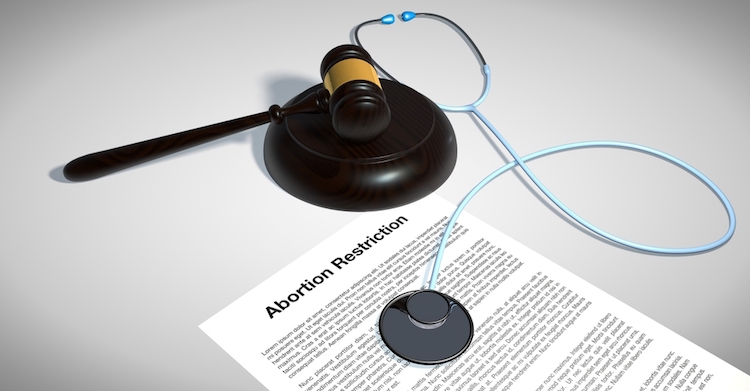Weekly Briefs: Texas abortion clinics return to SCOTUS; law prof known for critical race theory work wins award

Image from Shutterstock.
Texas abortion clinics seek SCOTUS review
Abortion providers in Texas asked the U.S. Supreme Court on Thursday to consider whether their lawsuit challenging the state’s restrictive law can go forward. The Supreme Court had refused to block the law—which bans most abortions at about six weeks—in a Sept. 1 decision. Now, the abortion providers are asking for “certiorari before judgment” to get a decision before the 5th U.S. Circuit Court of Appeals at New Orleans decides whether the suit should be tossed. (SCOTUSblog, the New York Times, the petition)
Professor known for critical race theory work receives award
Kimberlé W. Crenshaw, a law professor whose research and teaching centers on critical race theory, is receiving the Association of American Law Schools’ Triennial Award for Lifetime Service to Legal Education and the Legal Profession. A professor at the University of California at Los Angeles School of Law and the Columbia Law School, Crenshaw is also known for establishing the concept of intersectionality. In a news release, she stated that both disciplines have become targets of censorship. (Association of American Law Schools’ press release)
Florida judge accused of ditching work agrees to discipline
Palm Beach County, Florida, Judge Marni A. Bryson has agreed to a 10-day suspension without pay, a $37,500 fine and a public reprimand to resolve ethics allegations about her courthouse absences. Bryson admitted that her attendance failed to meet expectations, she failed to notify managers of absences, and she failed to keep a record of absences. She had previously said she was doing work at home. The Florida Supreme Court still must approve the deal. (The Palm Beach Post, Law360)
Judge instructs jurors in R. Kelly trial
A federal judge in New York City began instructing jurors Friday in the sex-trafficking trial of R&B singer R. Kelly following closing arguments and weeks of testimony. Kelly’s lawyer argued that his accusers were motivated to lie about sexual abuse in a quest for money, and they were never forced to do anything against their will. An assistant U.S. attorney countered that Kelly was a “predator,” and he thought that his fame as a celebrity “meant he could do whatever he wanted.” Kelly is charged with racketeering and illegally transporting his victims across state lines. (The Associated Press, Reuters)
Nonprofit gets records on potential SCOTUS nominee
A nonprofit with ties to Republicans is reviewing documents regarding the 2014 nomination of Leondra Kruger to the California Supreme Court. Kruger has been mentioned as a potential nominee to the U.S. Supreme Court during the Biden administration. The nonprofit, America Rising Squared, requested the documents and received them Sept. 16. (Law.com)
Firms are launching innovative programs, but adoption from lawyers lags, survey finds
BigLaw firms are adopting cutting-edge technology, but lawyers are slow in adopting the new tools, according to a survey of 44 larger law firms by Baretz+Brunelle, a legal marketing and advisory company. Tech-enabled document drafting and assembly was the most popular with law firms—with 95% of the respondents adopting the technology. The least popular were smart contract and blockchain initiatives—adopted by about half of the respondents. The company asked law firms about 10 technology innovations in all and then asked firms to score how often the tools were implemented by lawyers. Most of the initiatives got a score of three or below on a scale with five as the highest number. (Reuters, Law.com)



